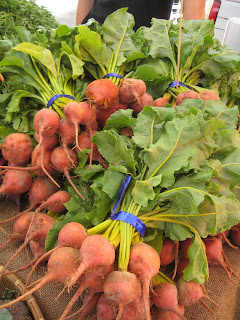
My first business, many years ago, was a wholesale company. I would make prepared lunch food and deliver it to grocery stores, coops, and university cafeterias. At its peak, my business serviced 50 or 60 stores in the Seattle area. But the product had a short shelf life and, I suppose, a limited appeal, and most stores accepted it as a guaranteed sale, in other words, we credited them for anything that didn't sell by its pull date.
My second business--a meal delivery service--was, in many ways, an answer to many of the things that didn't work about the first business. I figured that, if I was going to make a lot of small deliveries, I might as well deal directly with the actual customers, and charge retail. That was a much happier business; I sold it about 5 years ago, and my current business is even happier.
This year, as we headed into the off season, I started looking for every possible way to generate more business. I want to provide more work for my staff, and I'm getting too old to keep saving money over the summer and then spending it all over the winter. (When I expressed this to my mother she responded, "That's called maturity.")
So I started thinking about wholesaling again, but I didn't want to get into the old routine of spending several days a week driving all over town doing deliveries. My shop is right near Madison Market, which is the current incarnation of the old Central Coop, one of my favorite accounts back in the day. I got to thinking that, rather than producing as much as I could of a limited number of items, I'd like to try a different model, and produce a range of items exclusively for one store. I want to build relationships with the staff and the customers, learn what they need, and produce it.
I'm starting with seitan, a "meat substitute" made from wheat gluten. At the risk of being immodest, I make the best seitan around-much better than the chewy, overpriced items that most natural foods stores carry. We made a sandwich with seitan at my little restaurant; people tell me regularly that it's the thing they missed most when we closed.
So I'm wholesaling seitan to Madison Market now. When I brought samples, the buyer practically accepted it on the spot. We're not selling a ton of it, but I'm going to give it time, do demos, and nurture the venture.













































